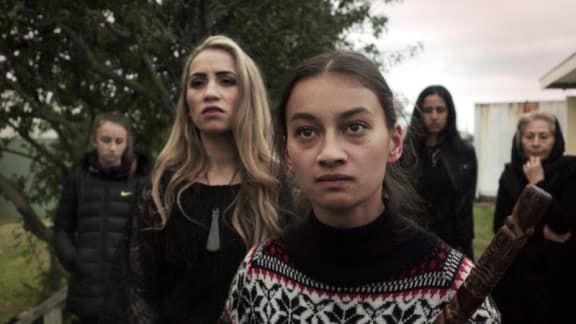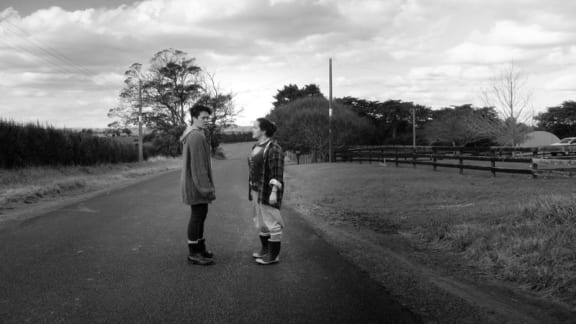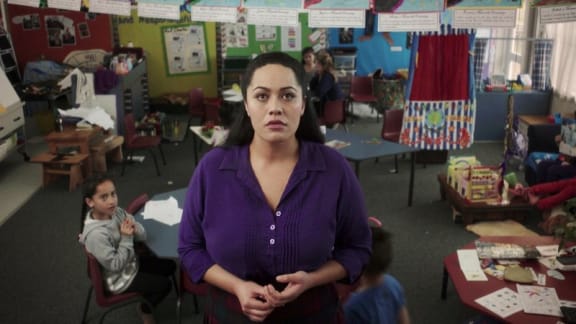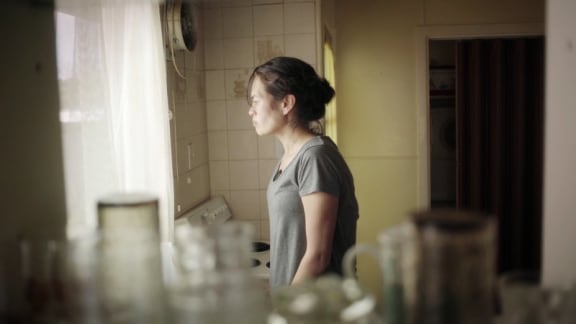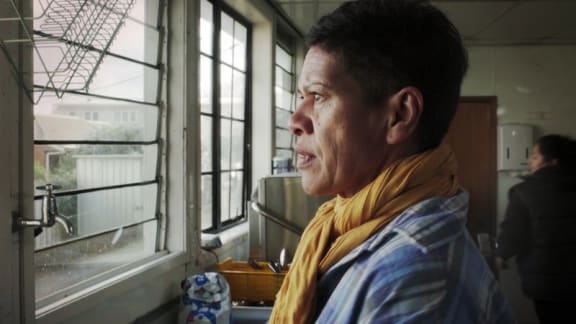Māori women’s stories are woefully under-represented in New Zealand cinema, director Katie Wolfe says.
She is one of eight wāhine directors behind Waru, a cooperative feature film screening at the New Zealand International Film Festival.
The 80-minute film explores the complexity of child abuse in a series of single-take vignettes.
At the centre is Waru, a young boy killed at the hands of a caregiver. His world is the centrepiece of the film, which explores cultural themes, custom, media reporting, and shame.
A single death is viewed through eight stories featuring the extended family and surrounding community, offering a glimpse into the immediate aftermath of a young boy’s death and the wider repercussions.
Director Katie Wolfe says child abuse is sometimes ''put into the corner as a Māori problem’’ and this is not the case in New Zealand.
The concept for Waru originated with the producers, Kerry Warkia and Kiel McNaughton.
Wolfe told Lynn Freeman that the last time a Māori woman made a narrative feature was almost 30 years ago.
‘’We’re already talking about what we could do next so now we sort of know how it works I imagine it will happen again.’’
Director Briar Grace-Smith, who works mainly as a writer, said she wanted to stretch her directorial wings.
‘’I was also really challenged by the subject matter, which was the death of a child through domestic abuse, challenged in that it scared me, but I was also I guess wanting to see how it could be approached in a way that made it not so heavy.’’
The directors met at a Waiheke island retreat for five days of intense preparation at the start of production.
‘’We knew we were in for one hell of a ride. It was definitely challenging,'' Wolfe says.
Grace-Smith says there is something about being with the women that inspired her to write a draft script.
She says she knew early on she wanted to set a scene in a marae kitchen.
‘’People talk in those spaces. They cook and they talk. It was just another approach to the subject
‘’It’s about looking at the wider picture around the issue and also to celebrate. I feel that several other films also celebrate…the women who work so hard to prevent and to support whānau that work in the communities…really strong women who are there and relied upon and called upon and in several of the films they intervene and they stop the act from happening.
‘’I wrote for a big cast, many different things happening within this one shot, but when I came on to the set and because I’m a new director and I was faced with all of these actors in this small space, I just about fell over.’’
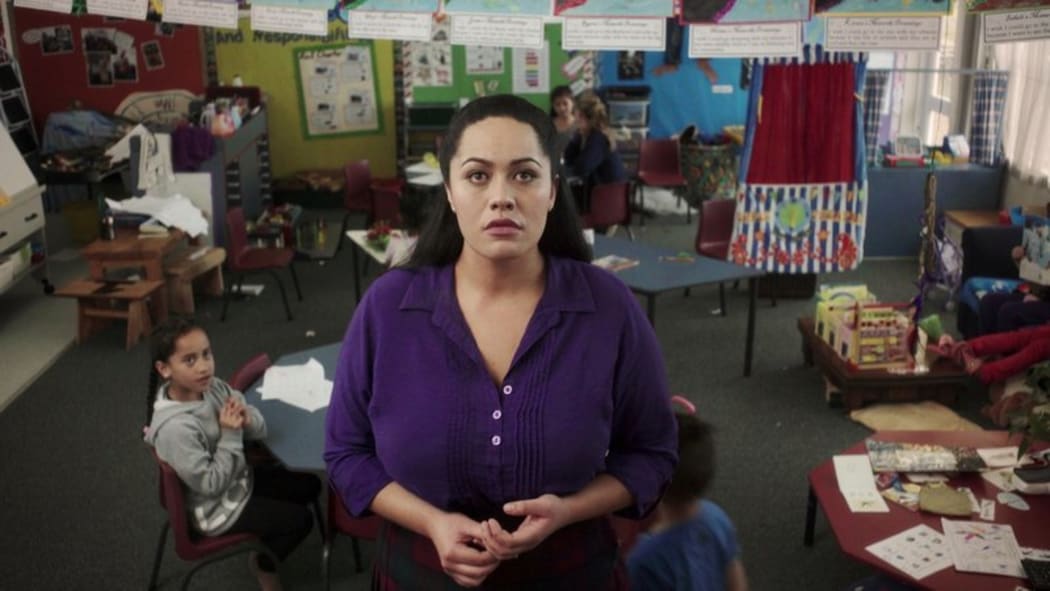
Photo: Supplied
She also says she had not realised how few Māori women featured in lead roles.
‘’I want people to think about, there are small acts that you can do that can kind of be potentially life-changing. It doesn’t have to be doing something major but just reaching out because domestic violence is the culmination of many many things and one of them is, of course, poverty.
‘’There’s also light and laughter.
‘’I didn’t realise how starved we were of seeing Māori women in lead roles so to get so many in one hit of these faces looking out at you, for me that was a really emotional experience.’’
Some of the vignettes retain characters from other segments while others are self-contained.
The directors used the character of Waru at the centre of the film, but the shorts steer away from the most violent acts, including the death, to explore the repercussions, the guilt, and the reactions.
Wolfe says they didn’t want to make another Once Were Warriors, concentrating instead on the aftermath.
‘’Yes, it’s not Goodbye Pork Pie.
‘’We’re not here for a good ride. I really hope that women enjoy seeing their story up there. For me, this is a film made by women, we don’t get a chance to put our stories out there on the big screen.
‘’We’re terrible terribly under-represented in the canon of New Zealand cinema so even if it is uncomfortable I know it will be really fresh.’’
The directors were on set for the others’ productions and this changed her thinking and approach towards storytelling, she says.
All the directors approached the single-take aesthetic differently and, for her segment, Wolfe managed to get the take late in the afternoon as light was fading.
Waru premiers at the New Zealand International Film Festival.
